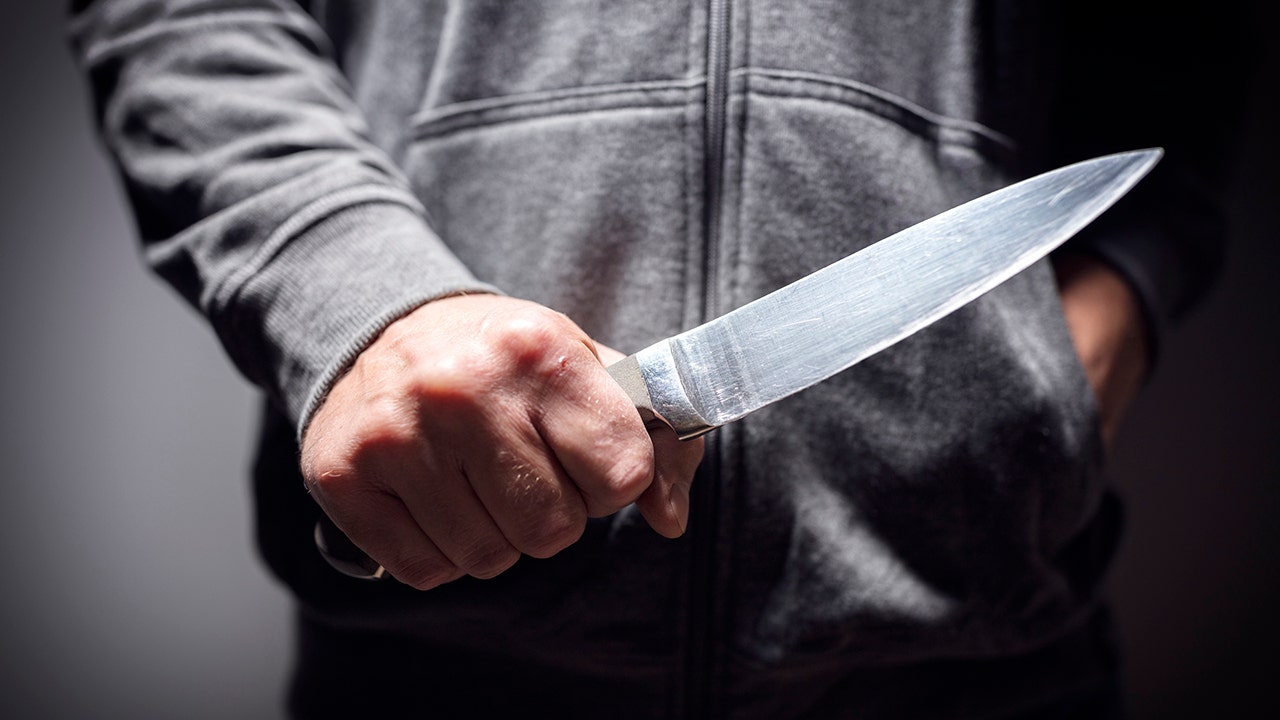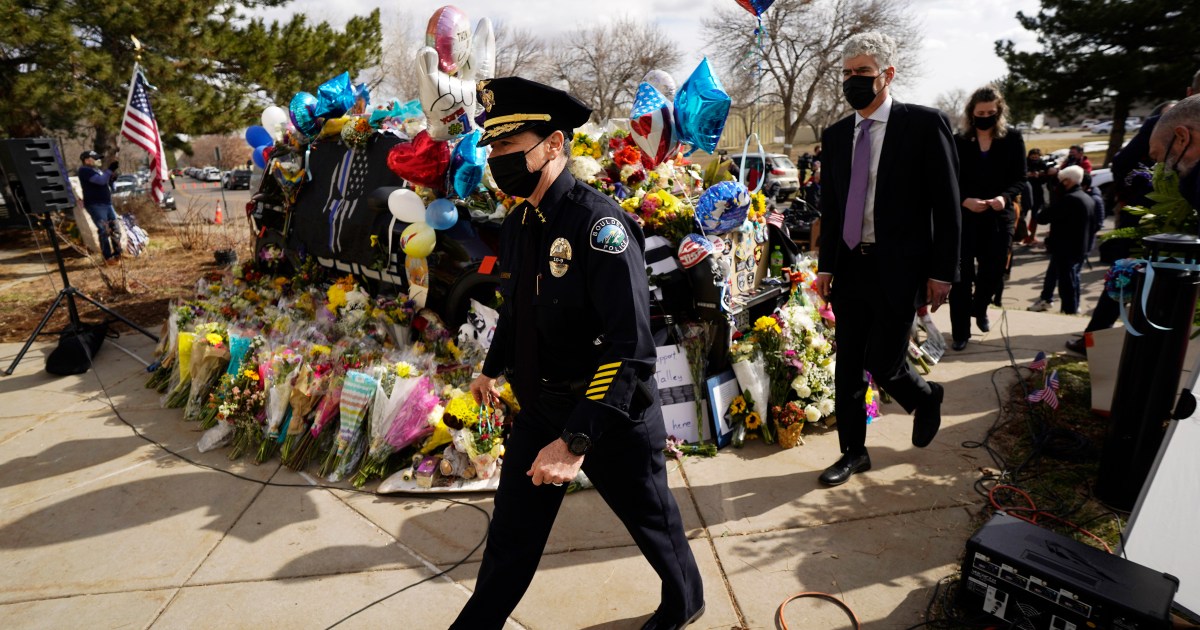'It's impossible': Spain's flamenco bars face an existential threat
'It's impossible': Spain's flamenco bars face an existential threat

Plummeting audience numbers fuel calls for government assistance as famed tablaos struggle to survive
A little after 7.30pm on Wednesday night, a small crowd gathered in a dark, brick-lined bar in central Madrid to sit at candlelit, socially-distanced tables and lose themselves for an hour in the sweat, shouts and blurred hands, hems and heels of a flamenco show.
The 16 people in the audience at the Cardamomo tablao, or flamenco venue, were in luck – but then so were the eight performers on stage. Neither flamenco’s iconic place in Spanish culture nor its global status as part of Unesco’s list of intangible cultural heritage of humanity has spared it the pains and penalties of the Covid pandemic.
Continue reading...Deutsche Welle from Michael_Novakhov (6 sites): Deutsche Welle: Coronavirus digest: AstraZeneca vaccine 'still safe,' says WHO

China leads the world in illegal, unreported and unregulated fishing, NGO says
Apparent harder line toward Havana represents shift from Obama years
 audio/mpeg 032721news04.mp3
audio/mpeg 032721news04.mp3Download audio: https://play.podtrac.com/npr-500005/edge1.pod.npr.org/anon.npr-mp3/npr/newscasts/2021/03/27/newscast030836.mp3?awCollectionId=500005&awEpisodeId=981861675&orgId=1&d=300&p=500005&story=981861675&t=podcast&e=981861675&size=4500000&ft=pod&f=500005
The post Why Russia Lost the Cold War – War on the Rocks first appeared on The Brooklyn News.

- Some Mexicans Travel To U.S. For COVID Vaccines As Their Country's Rollout Stumbles NPR
- Study underway to determine if people can still carry and transmit COVID after vaccination KING 5
- Gym celebrated by Fox News is giving free memberships to anti-vaxxers Business Insider
- COVID vaccination clinic at Clackamas Town Center opens Friday KGW News
- Atilis Gym in Bellmawr says they'll give free memberships to those who don't get vaccinated WABC-TV
- View Full Coverage on Google News
Michael_Novakhov shared this story . |
BRUSSELS (Reuters) – U.S. Secretary of State Antony Blinken said on Wednesday he had told his German counterpart that sanctions against the Nord Stream 2 natural gas pipeline were a real possibility and there was “no ambiguity” in American opposition to its construction.
Berlin has so far been betting the new U.S. administration of President Joe Biden will take a pragmatic approach to the project to ship Russian gas to Europe because it is almost completed, officials and diplomats have told Reuters.
Reiterating Biden’s concerns about the pipeline from Russia to Germany, Blinken said he told German Foreign Minister Heiko Maas on Tuesday in a private meeting that companies involved in the project risked sanctions, particularly at a point when construction might finish.
“I made clear that firms engaged in pipeline construction risk U.S. sanctions. The pipeline divides Europe, it exposes Ukraine and central Europe to Russian manipulation and coercion, it goes against Europe’s own stated energy goals,” Blinken told a news conference.
The Kremlin says Nord Stream 2, a $11 billion venture led by Russian state energy company Gazprom, is a commercial project, but several U.S. administrations have opposed the project and Europe has vowed to reduce its reliance on Russian energy.
The United States and eastern European Union countries such as Poland say Nord Stream 2 is part of Russian economic and political measures to manipulate European countries and undermine transatlantic ties.
“What I said (to Maas) was that we will continue to monitor activity to complete or certify the pipeline and if that activity takes place, we will make a determination on the applicability of sanctions,” Blinken said.
He said it was important to carry the message directly to Maas, “just to make clear our position and to make sure there is no ambiguity.”
Reuters reported on Feb. 24 that 18 companies recently quit work on the pipeline to avoid sanctions.
Asked about a possible compromise in which Germany’s energy grid regulator could be empowered to stop gas flowing if Russia crossed a line, Blinken declined to comment.
Last month, a former German ambassador to the United States floated the idea of a compromise between Washington and Berlin that would have given the completed pipeline a use as political leverage.
Triggers for what the former envoy, Wolfgang Ischinger, called an “emergency brake” might include a flare-up in violence between Ukraine and Russia, which annexed Ukraine’s Crimea peninsula in 2014, or if Moscow sought to undermine Kyiv’s existing gas transit infrastructure.
Reporting by Robin Emmott; Editing by Andrew Heavens and Edmund Blair
U.S.’s Blinken warned Germany’s Maas about Nord Stream 2 sanctions reut.rs/39dVZCq
mikenov on Twitter
Robert Beckhusen
Security, Europe

Captain Alexander Mikhailovich Zuyev was a man with a lot of weight on his shoulders in the final years of the Soviet Union.
Here's What You Need to Remember: Zuyev was handed over to the United States, while his aircraft was returned to the Soviet Union. Naturally, the US wasn’t too happy about this, but the Turkish government wanted no trouble with its neighbors across the Black Sea.
How far would you go for freedom? Would you betray your own countrymen? Risk life and limb? Bake a cake?
Although it’s going to be hard to believe, a Soviet fighter pilot checked “all of the above” on his list of things to do before defecting to the United States- and the tale is so bizarre, it couldn’t be made up.
Born in 1961, Captain Alexander Mikhailovich Zuyev was a man with a lot of weight on his shoulders in the final years of the Soviet Union. Between a strained relationship with his wife (who was the daughter of the Air Division Chief-of-staff), a rejection letter from test pilot school and personal doubts about the Soviet Union’s communist system, he felt trapped and yearned to seek freer skies.
Zuyev had grown up a communist, raised by the system to be the model example of where a Soviet could go in life. Married to a high-profile woman and a top pilot in the MiG-29 Fulcrum, life was good- at least until he started to better understand the system itself.
In 1983, the Soviet Union shot down Korean Air Lines Flight 007, killing all 269 passengers aboard, including U.S. Congressman Larry McDonald. The Soviets not only initially denied shooting down the aircraft, and even sent trawler ships to scatter the wreckage in the Sea of Japan before sending divers. Later, the Soviets would claim the aircraft was misidentified as a U.S. surveillance plane.
Two years after the incident, Zuyev was informed by his friend -a radar technician- that Arctic gales had knocked out the radar on the Kamchatka Peninsula, and that local officials had lied to Moscow, claiming the radar was fixed.
“Some people lied to Moscow, trying to save their ass,” Zuyev would later say of the incident.
Zuyev also learned that the public evacuation of children from the towns affected by the Chernobyl reactor meltdown incident was delayed two weeks, while prominent party members and their families were allowed to flee within 48 hours.
“How would you feel?” he later said. “Would you feel like this is a fair system? Would you feel like you would be happy to defend this system?”
The final straw for Captain Zuyev, however, came with the Tbilisi Massacre, when 21 civilians in Soviet Georgia were killed by Soviet troops after they had staged an anti-Soviet protest.
“They were peaceful demonstrators,” he said. “I was shocked to the depths of my soul, by the brutal slaughter that the army inflicted on the defenseless people.”
When Zuyev was told he and his fellow pilots may be used against future demonstrations, he knew he didn’t have much time- he decided to embark on a very difficult, if not impossible, flight to defect to the United States through Turkey.
“I didn’t want to kill my people,” he said. “I was trained to defend them, but not to kill.”
Zuyev knew that if he tried to escape, his fellow pilots would probably try to shoot him down. To combat this, he baked a strawberry cake laced with tranquilizers and made up a story about his wife being pregnant to give them an excuse to celebrate.
“I decided to use a strawberry cake,” he said.
With all eighteen of his fellow pilots heavily sedated (so much so that they all had to be hospitalized afterward), Zuyev cut the telephone lines and made his way to the hangar, where he would take down a guard and take off with one of the stored MiG-29s.
However, he met his match at the hangar, in the form of a guard- a mechanic that Zuyev told he would relieve due to his “relief being late.”
The guard returned after finding the others asleep and confronted Zuyev.
“When I was in school, I was a wrestler,” he said. “Once, I won the championship. I was pretty confident that it would be so easy to tie him up. You won’t believe it but he was a wrestler too. He was pretty good.”
The two fought on the ground for some time before exchanging shots, with Zuyev hitting the guard several times and getting shot in the shoulder in the process.
Zuyev scrambled to the jet and attempted to start it, but nothing happened. At this moment, he was afraid that he would be shot for trying to desert.
“I thought, ‘This is it, this is really the end of my life,’” he later said.
Telling himself to “chill out,” he slowly began the start-up process once more and managed to take off.
Now airborne, Zuyev weaved low and fast between forests, hills, friendly airbases and an extensive air defense network before flying around 150 miles across the Black Sea.
As Turkish territories closed in on him, he landed the plane in Trabzon. When he stopped the aircraft on the tarmac, he waited for some time before a lone guard came out to see what was going on.
Zuyev’s first words were “Finally, I- an American!” In later interviews, he said those were the only words he knew how to say.
Fortunately, the guard spoke English and smiled with relief.
Zuyev was handed over to the United States, while his aircraft was returned to the Soviet Union. Naturally, the US wasn’t too happy about this, but the Turkish government wanted no trouble with its neighbors across the Black Sea.
Zuyev began working for the CIA and Department of Defense, and later revealed to the world the truth about KAL Flight 007.
Eventually, Zuyev settled down in San Diego, California. He was killed in a plane crash in 2001.
This article first appeared last year.
Image: Wikipedia
In this episode of Horns of a Dilemma, Prof. Sarah Paine of the U.S. Naval War College examines a variety of explanations for why the Cold War ended, when it did, and how it did. Paine does not arrive at a single answer but paints a much richer portrait of the fascinating events that lead […]
The post Why Russia Lost the Cold War appeared first on War on the Rocks.





Bet you've heard the endless narrative flowing from the White House to allies – ditch Russia's Nord Stream 2 energy pipeline to Europe! But hypocrisy is right around the corner: figures show that, when it comes to America itself importing oil from the 'designated enemy' – it's far less discerning and the US has imported a record amount of, you've guessed it, RUSSIAN oil.
Follow us on Telegram https://t.me/rtintl / https://t.me/rtvisual

Raw-milk product normally sold only to restaurants or visitors to Cîteaux Abbey is marketed online
A French monastery in the heart of Burgundy has launched an emergency online sale to get rid of thousands of its artisanal cheeses, which are languishing in its cellars as Covid-19 keeps buyers away.
The Cîteaux Abbey, just south of Dijon, birthplace of the Cistercian Catholic order, usually sells its raw-milk, semi-soft discs only to restaurants or visitors to its on-site shop. But a drop in demand since the coronavirus crisis erupted last year has left the abbey’s 19 Trappist monks with 4,000 cheeses too many, a 2.8-tonne problem.
Continue reading...


Comments
Post a Comment